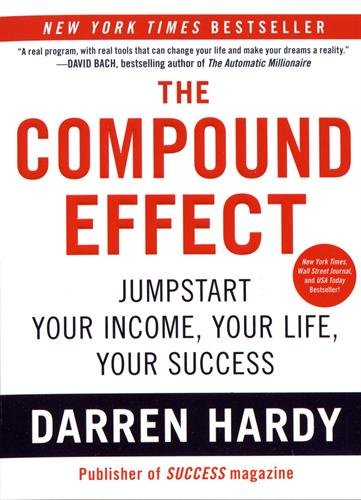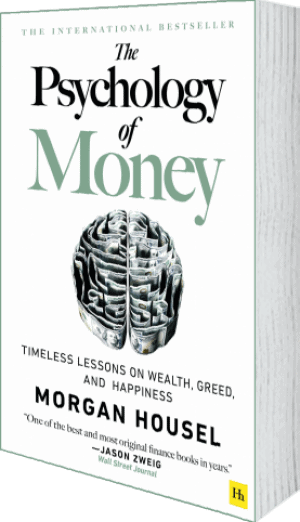Everything Compounds – “The Compound Effect” by Darren Hardy
I picked up this book thinking that it would be an in-depth thesis on the power of compounding in financial investments. But it turned out to be more than that, and the better for it.

“The Compound Effect” by Darren Hardy explores the power of compounding in our everyday lives – our habits, our goals, our routines, our successes, and failures. The central premise of this book is simple enough – “Everything compounds. It is up to us to choose the direction that it happens in our lives”.
It is a motivational book, no doubt. I am not a keen fan of this genre of books, but when I started reading the book, I could not stop – even after realizing that the thesis had little to do with personal finance.
Hardy starts off with explaining the power of compounding in our lives with examples, and shows the readers methods, tools, and techniques to follow to harness this power to become better versions of ourselves.
The book is peppered with great anecdotes (some of which are well-known) and motivating quotes (some of which are a bit cliched). The one quote I liked had a bit of a Gandhian vibe – “Don’t wish it were easier; wish you were better”.
But it’s hard to agree with the exhortations of the author 100% – especially in places where he advocates using these methods in our personal and family relationships (have a weekly ‘relationship review’? Seriously?). However, bulk of the book is quite immediately usable and could serve as a guide to streamlining of day-to-day routines and habits to re-orient ourselves in the right direction.
The foundational thesis is that if we have a plan to make a small degree of improvement in the right direction and persist with it over the long-term, miraculous things could happen. A bit of ‘Kaizen’ for our everyday lives, I suppose.
The first two chapters lay the foundation – about the choices we make in life (and take responsibility for) and the habits that make us who we are. The next two chapters – on momentum and influences were very interesting and (for me) eye-opening. The last chapter on acceleration seemed a bit overbearing, though. The book also comes with a companion website which provides tools and templates that we can use to adopt the methods prescribed in the book.
At times the author comes off like that over-enthu, hyper-fit fitness trainer who keeps saying that you too can get a six-pack if you follow his instructions. But, as we know, even if we don’t get the six-pack, we would at least get fitter and healthier if we follow the routines he prescribes. It’s the same with this book as well.
In the earlier book that I wrote about – The Psychology of Money – Morgan Housel mentioned that compounding is really a hard concept for human brains to get a grip on due to its astounding ability to deliver growth (or de-growth) of outlandish magnitude. This book, if not anything else, would help us to internalize the concept by relating it to our regular lives.
All in all, an interesting, short read – one that we can dip into whenever we need a jolt of positive energy.
(Not an affiliate link)


